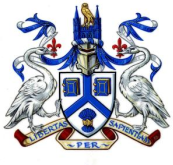
|
|
Keynote Speaker
AI and Games: Using All the Tools in the Toolbox

|
Richard Bartle |
Abstract
Great strides are being made in creating and adapting new Artificial Intelligence techniques for use in Computer Games. However, early AI work was done at a time when home computers weren't powerful enough to use it, and as a result some older techniques have been generally overlooked. This talk takes a look at some of the tools that date from the era of good old-fashioned AI and applies them to modern problems. In particular, automatic quest generation could learn a lot from 1980s AI.
Curriculum Vitae
Professor Richard A. Bartle is best known for having co-written in 1978 the very first virtual world, MUD, and for his 1996 Player Types model which has seen widespread adoption by the MMO industry and beyond. His 2003 book, "Designing Virtual Worlds", is the standard text on the subject and he is an influential writer on all aspects of online game design and development. In 2010, he was the first recipient of the prestigious Game Developers Choice award of Online Game Legend.
Invited Speakers
Challenges and Opportunities of Developing for the HTML5 Platform

|
Ewan Lamont |
Abstract
Legendary Games was founded with the vision of creating truly social games. Games that are played with other human players with technology that supports online play from any internet enabled device. This led us immediately in the direction of developing in HTML5 as this was the technology of the future which promised to do all these things. The talk will focus on the challenges and opportunities of developing in the medium using our own games as a case reference along the way.
Curriculum Vitae
Ewan Lamont is the co-founder and Chief Executive Officer of Legendary Games and leads all strategic, operational and tactical decisions and all financial, management and product development activities. Ewan is an accredited Project Manager and specialises in business change and new start-ups with numerous years of experience in different business environments including game creation, book publishing, retail and automotive.
Prior to Legendary Games, he was the Senior Producer and Programme Manager for Monumental games and has managed the creation of three start-up businesses including a £5 million Vehicle Data Supplier and re-launching pen and Paper RPG Warhammer Fantasy Role Play. Along with his Masters Degree in Archaeological research from the University of Nottingham, he also has a Masters Degree with honours in Classical Civilisations and Archaeology from the University of Glasgow.
Can we and should we automatically design games? Which and how?
 |
Julian Togelius |
Abstract
Games, including computer games, are designed by humans for humans. Game design is an art, a craft and perhaps a science.
Artificial intelligence is about inventing computer programs that can do things that currently only humans can do. Such as game design. But how could we automatically design complete games, that are novel and that people would want to play? I give an overview of several attempts to automate game design, including my own. I then discuss what the biggest challenges are for realising this vision, and which types of games we are most likely to succeed with. Even if we only succeed partially, we will learn much about game design in the process, and develop technology for mixed-initiative tools that would help game design. Finally, I speculate about what it would mean for game design, society and humanity if we do succeed.
Curriculum Vitae
Julian Togelius is Associate Professor at the Center for Computer Games Research, IT University of Copenhagen, Denmark. He works on all aspects of computational intelligence and games and on selected topics in evolutionary computation and evolutionary reinforcement learning.
His current main research directions involve search-based procedural content generation in games, game adaptation through player modelling, automatic game design, and fair and relevant benchmarking of game AI through competitions. He is a past chair of the IEEE CIS Technical Committee on Games, and an associate editor of IEEE Transactions on Computational Intelligence and Games. Togelius holds a BA from Lund University, an MSc from the University of Sussex, and a PhD from the University of Essex.


 Tel:
Tel: 
 Email:
Email: 







